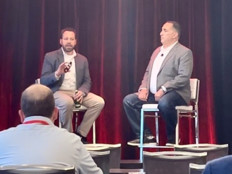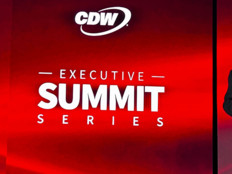The State of Legal IT: Email Management Is Still a Headache
Got mail? It’s not just a quaint catchphrase from AOL’s heyday in the 1990s.
For many IT workers supporting law firms, it’s also a phrase that inspires fear, anxiety and stress.
The 2013 ILTA/InsideLegal Technology Purchasing Survey named email management as the number one IT challenge law firms face for the sixth consecutive year.
To Tom Mighell, a lawyer and the ABA Law Practice Management Publications Chair, all of the handwringing over email is unnecessary. Email archiving software and solutions are readily available, he points out in the Kennedy-Mighell Report, a podcast hosted on the ABA’s Legal Technology Resource Center. But only 15 percent of respondents had purchased an email archiving system in the past 12 months and only 11 percent had any intention of making an email archiving system purchase in the next 12 months.
“It seems to be a disconnect to me that the challenges on email are not being responded to by an offsetting response of ‘How do we fix this?’” Mighell says. “I think that's because email is such a difficult beast to get your arms around and so most people don't want to deal with it and people want to keep their email forever and that's why we still have it as a challenge.”
Big Data Isn’t a Big Issue Yet for Law Firms
While talk and daydreaming around Big Data initiatives is happening, the shovels haven’t really hit the dirt in any meaningful ways. According to the ILTA survey, 21 percent of respondents were not sure how Big Data would impact their firm and 18 percent believe it won’t impact their firm much. That means 39 percent of the legal IT professionals surveyed say they aren’t thinking about Big Data in any major capacity.
“People are thinking a little about the notion of Big Data but not really doing a lot in it. I think that makes sense. I think we're really early on in the whole notion of Big Data,” says Dennis Kennedy, a lawyer and co-host of the Kennedy-Mighell Report.
Lawyers Get Cozy with the Cloud
Cloud computing was a rising area of legal IT that both lawyers felt was being spurred by consumer-focused cloud tools like Dropbox. A whopping 58 percent of lawyers admitted to using Dropbox in the 2013 ABA Legal Technology Survey Report, which is up from a mere 4 percent in 2012, Kennedy says.
“It shows a level of comfort with cloud that I think is surprising based on a lot of discussion that you hear about cloud,” he adds.
Kennedy’s point is valid, as lawyers and law firms have been among the loudest voices sounding the alarms about data security safeguards for organizations moving their IT to the cloud. It appears that many lawyers are walking as blindly into the cloud as their clients.
Mobile Security Needs Work
The cloud isn’t the only leaky hole in legal IT. While the number of mobile devices has been on the rise in law firms (86 percent of lawyers in the ILTA survey say they use tablets for work), the security on these devices has been largely an afterthought.
“While lawyers seem to be moving more towards a mobile practice to using smartphones and tablets more, there's not a similar increase in the technology they're using to protect their mobile technology,” Mighell says.
The good news is more lawyers are at least putting passwords on their devices, but the bad news is that most attorneys aren’t using the more advanced security solutions available to them.
This user inaction in securing mobile devices is part of the reason why mobile device manufacturers like Apple are baking security features into their mobile operating systems. The new iOS 7, for example, allows for VPN access on an app-by-app basis.
Overall, Kenney and Mighell both feel that the legal IT landscape hasn’t changed too much since 2012 but both the ABA and ILTA surveys provide a nice big-picture snapshot of the legal landscape.
“I think it's probably the best information that we get about what lawyers and law firms are doing with technology,” Kennedy says.







